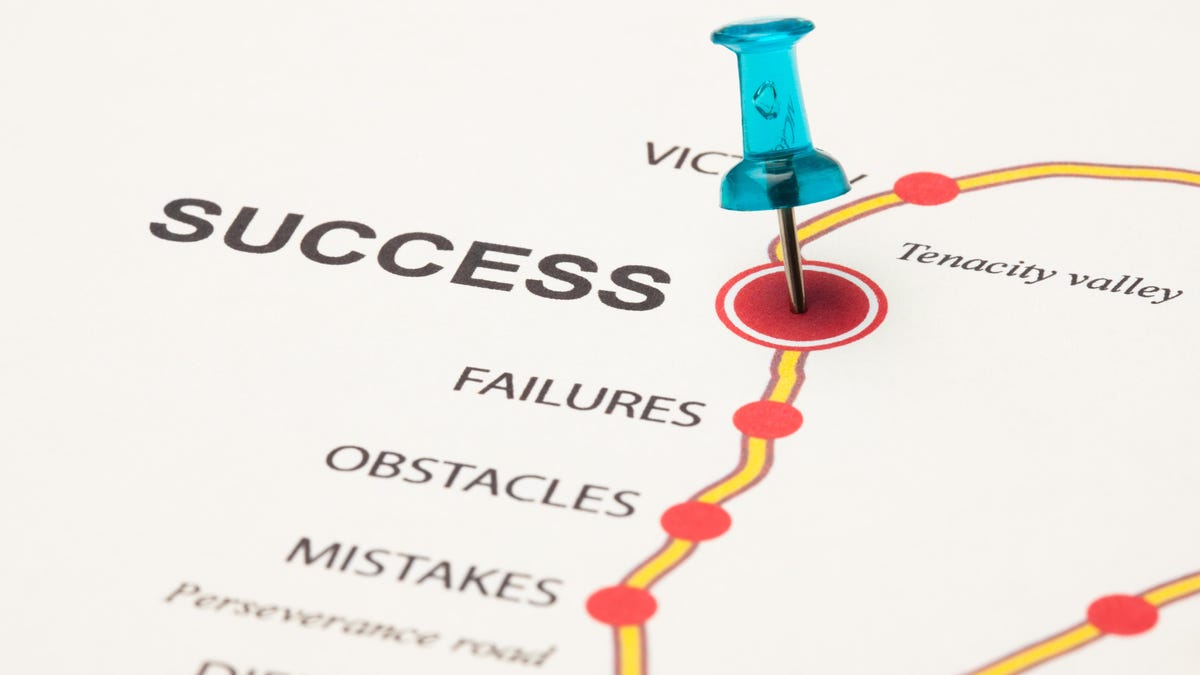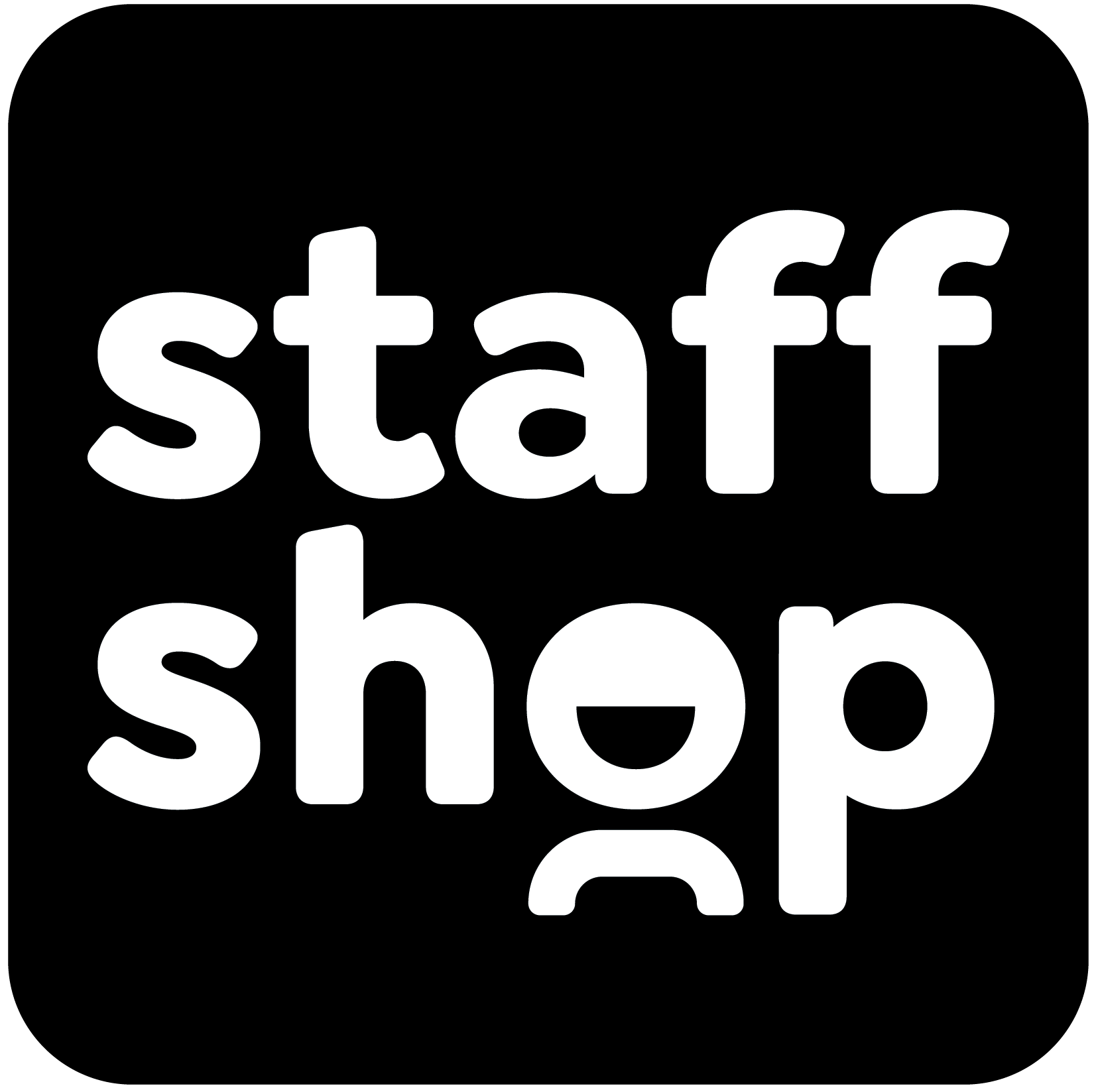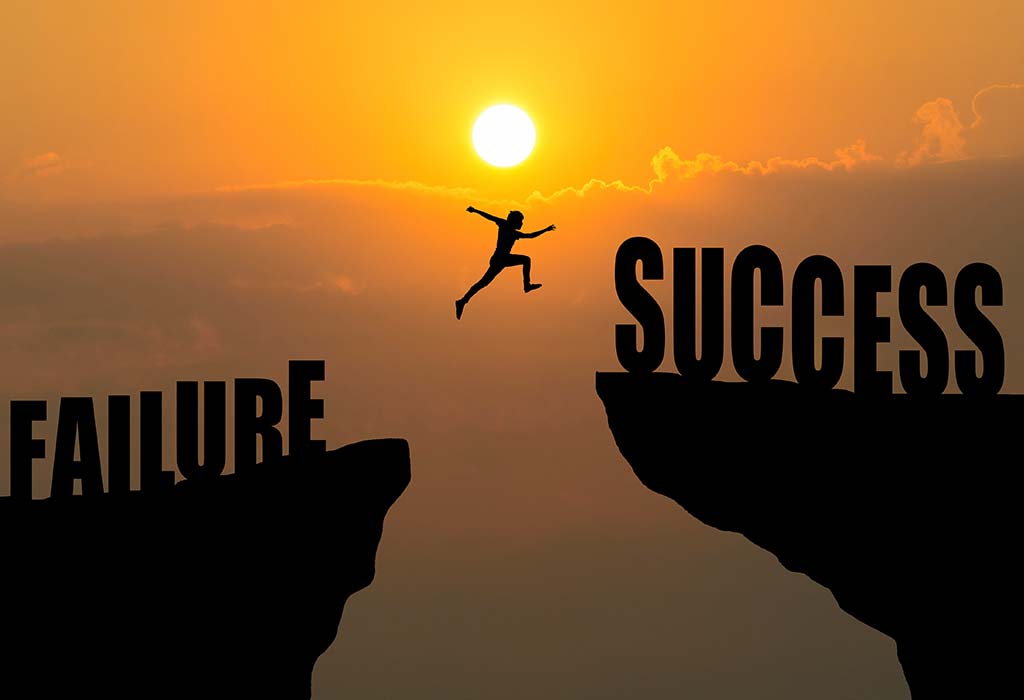“The secret of life is to fall seven times and to get up eight times.” — Paulo Coelho
Many of us have been conditioned to believe that “failure is not an option.” Not only is this phrase shortsighted and not in touch with reality, it’s really quite damaging. When we stop seeing failure as the opposite of success and instead view it as part of the process, we let go of the shame and fear that comes with failing. Having an unhealthy relationship with failure ultimately halts growth and progress. You end up stuck in a negative spiral, constantly trying to please everyone while beating yourself up. Letting go of this is hard, but necessary.
In her MasterClass, the creator of Spanx, Sara Blakely, talks about growing up with her father, who wouldn’t just ask how her day was, but instead ask what she failed at. In essence, he found value in discussing what went wrong each day and what she learned from it. Staff Shop does something similar. We call it HOGG Time, where staff are asked to share something humorous, an “oops”, gratitude or a gift. This helps to humanize staff by normalizing things like mistakes. It adds a bit of levity to everyone’s week.
Let’s look at the ways failure can be a positive thing in our lives – in business, education and our personal lives.
 Productively Failing
Productively Failing
New research shows that when it comes to education, it might be better to try and fail first, rather than having something explained to us outright. By failing to grasp a concept or solving a puzzle at first, you are actually progressing. In many ways, trying to exercise first, followed by a lesson can be more productive than the vice-versa. “If students fail “productively” during the practice stage, their learning outcomes are up to three times better than what a very good teacher can achieve in a year.”
Why does this work? The students are using prior knowledge to attack the problem. So, even though they are working on something new, they are still using existing skills to solve the problem, even if they don’t fully understand it yet.
By productively failing at first, the students are able to learn from their mistakes and recognize what went wrong quicker. This can be applied to any task or project we try and fail at. You can learn from your mistakes when you tackle it again.
Culture of Forgiveness
When organizations are intolerant to failure you in turn create a toxic work culture. There has been a lot of media coverage regarding “The Great Resignation.” This is a recent phenomenon where people are leaving their jobs at an alarmingly high rate. The stress of the pandemic seemed to push many people over the edge. And while most assume people are leaving due to poor compensation, toxic workplace culture is actually a bigger contributing factor.
Creating a culture of forgiveness is so important. When you don’t tolerate failure, employees will feel like they’re constantly just one mistake away from getting fired. When you work in a forgiving environment, you feel more free to be creative. You can try new things without fear. You can collaborate in new and innovative ways because you know your superiors have set up a safety net for you. In the end, you end up with better solutions to problems because you’ve removed the negative feelings surrounding the project. It’s not an all or nothing experiment.
Instead of reprimanding staff for mistakes, try saying, “what did you learn from it?” And “I forgive you, now let’s move on and start again.”
Perceived Failure
While all the above examples cover actual failures, we cannot forget that there’s another type. These are your perceived failures. The failures that aren’t actually failures at all. At work and in our personal lives we shoulder a lot of responsibilities. And while we may try and fail at some things due to our own choices, some failures aren’t our fault at all.
In this case, we need to create a culture of forgiving ourselves and letting go of things that are outside of our control. Yes, failure is a gift when it’s something you can learn and grow from, but when you’re needlessly blaming yourself for assumed failures, you need to do what the song says and “Let it Go.”
Book Time with Us
Founder and CEO, Jennifer Ménard-Shand and COO Alison Hernández work hard to create a culture of forgiveness here at Staff Shop. Book time with either of them to learn more about their stories and why failure is a gift.
As always, we invite you to Join Us or Hire Us! Contact Staff Shop Today!
“I can accept failure. Everyone fails at something. But I can’t accept not trying.” ― Michael Jordan





